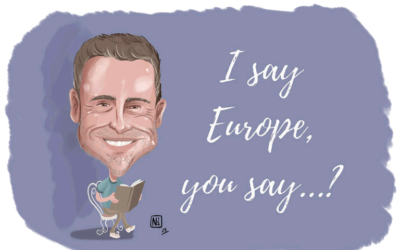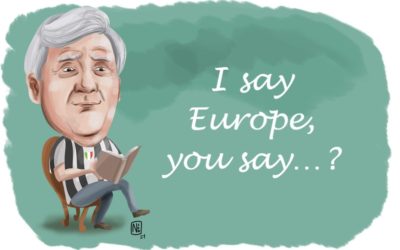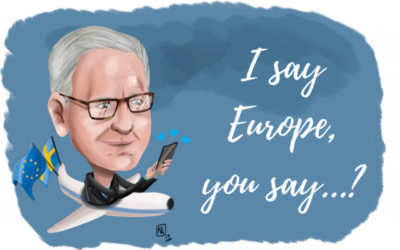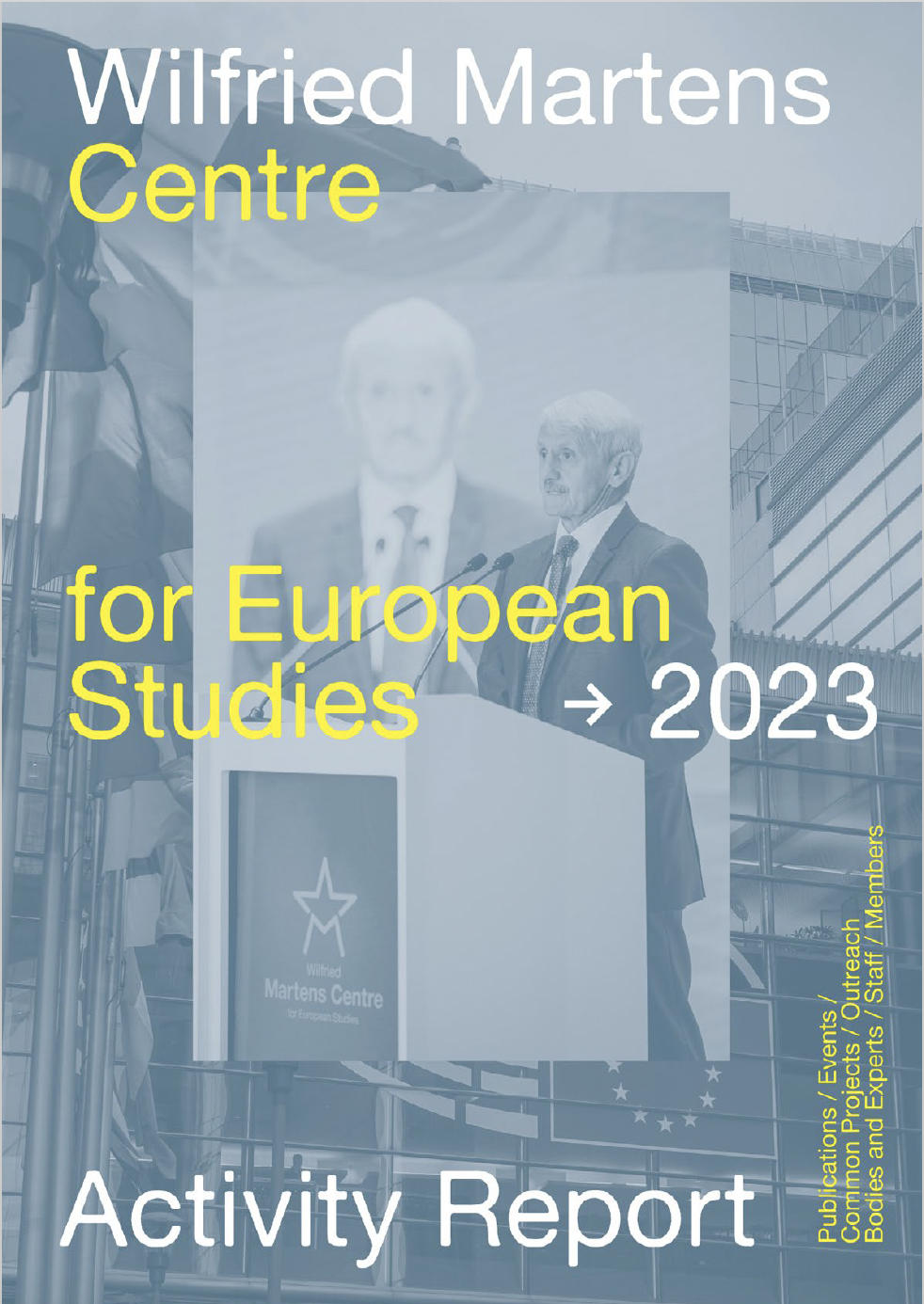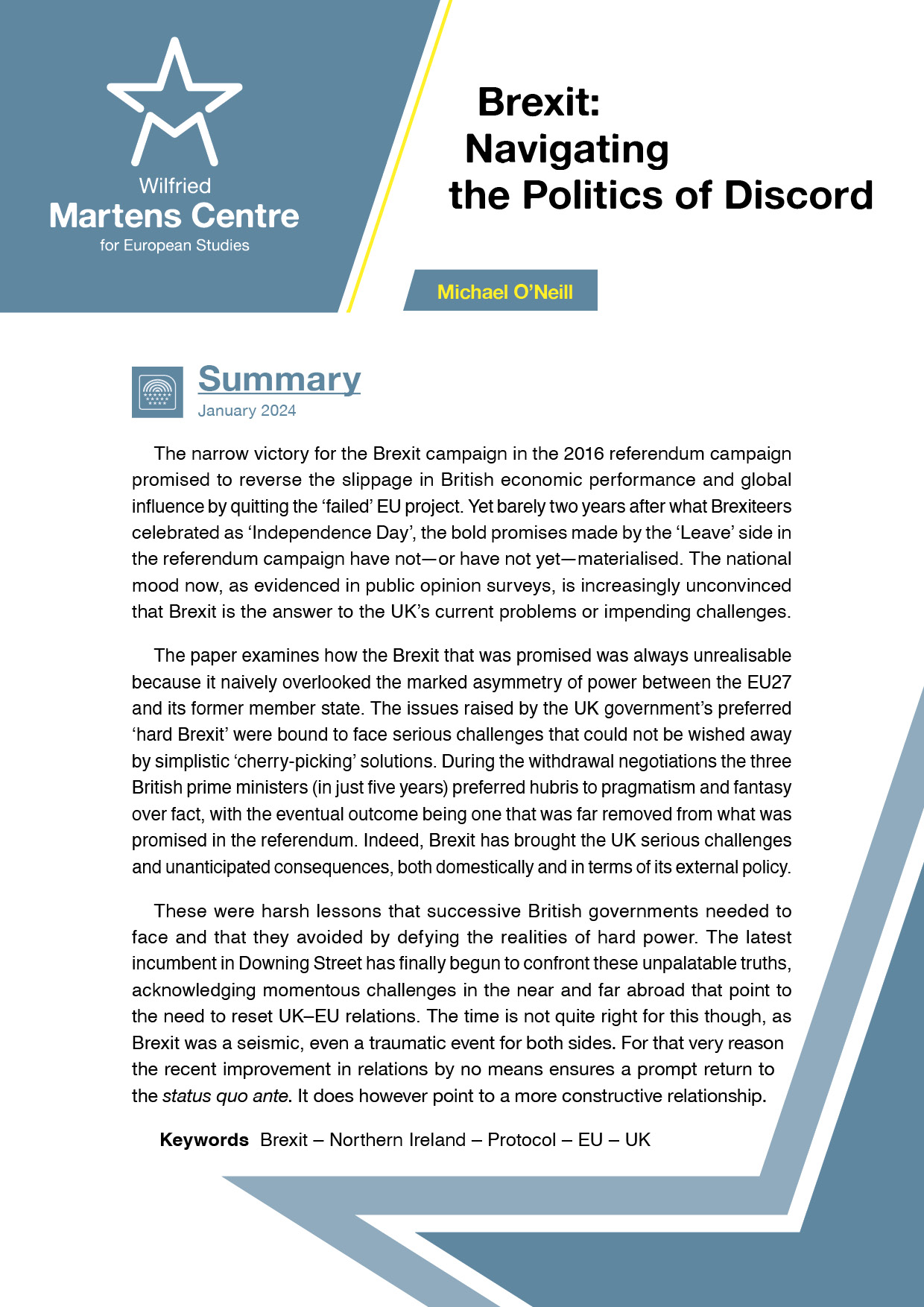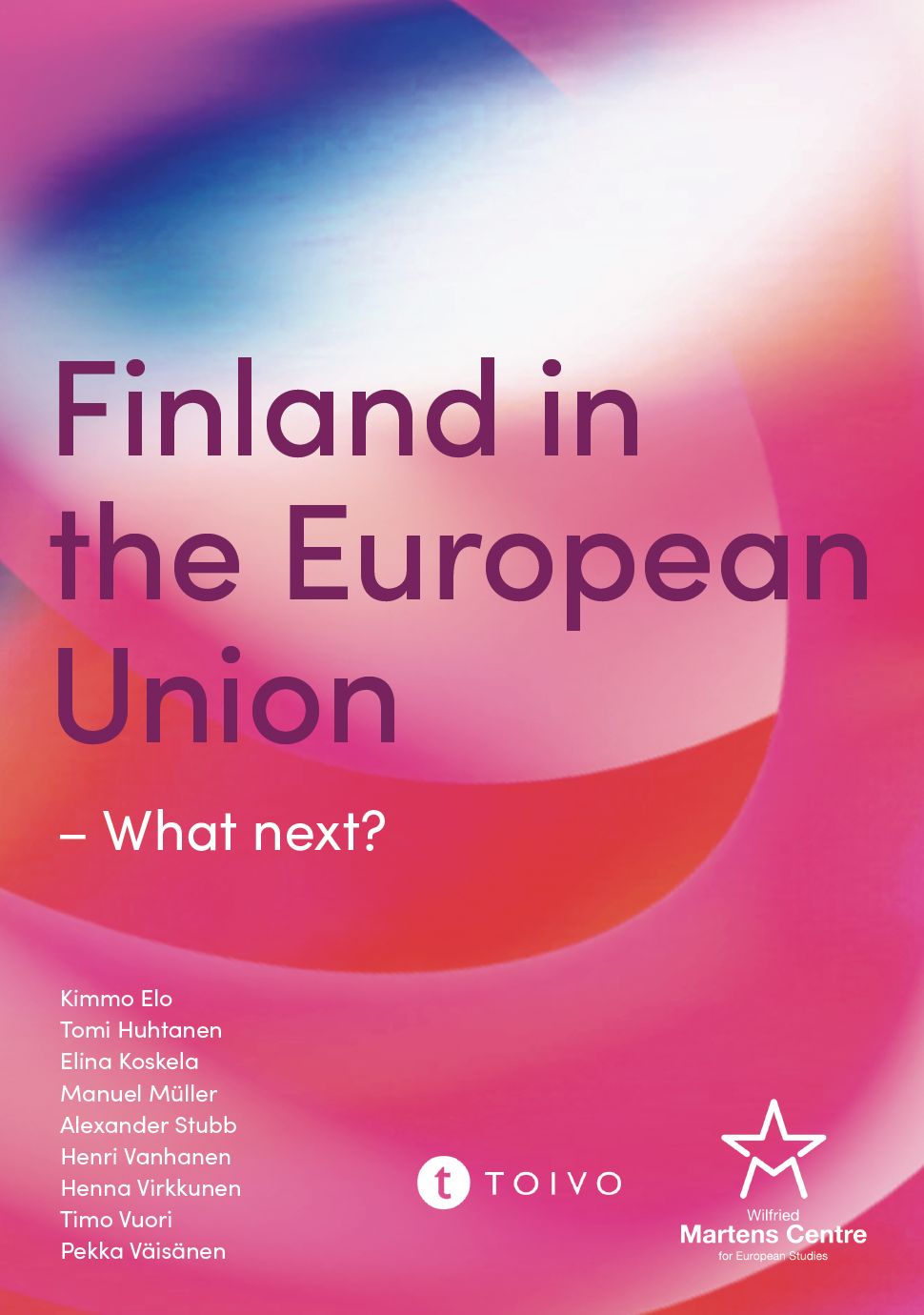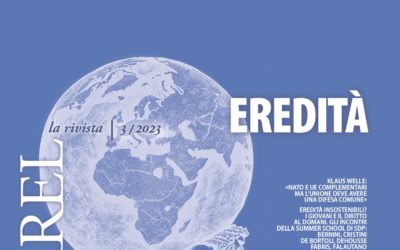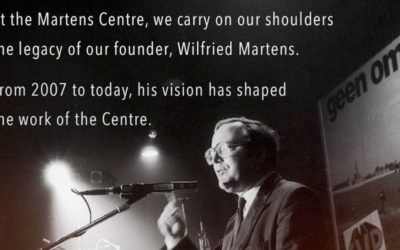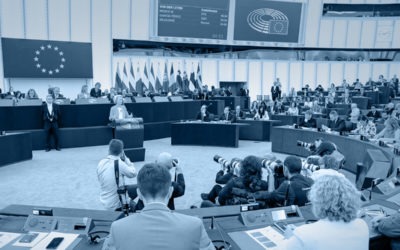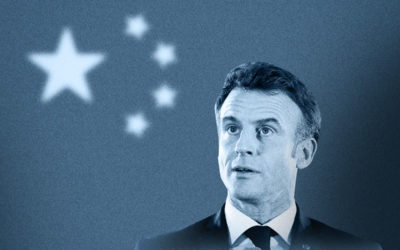I say Europe, you say…? Interview with Donald Tusk
01 October 2020
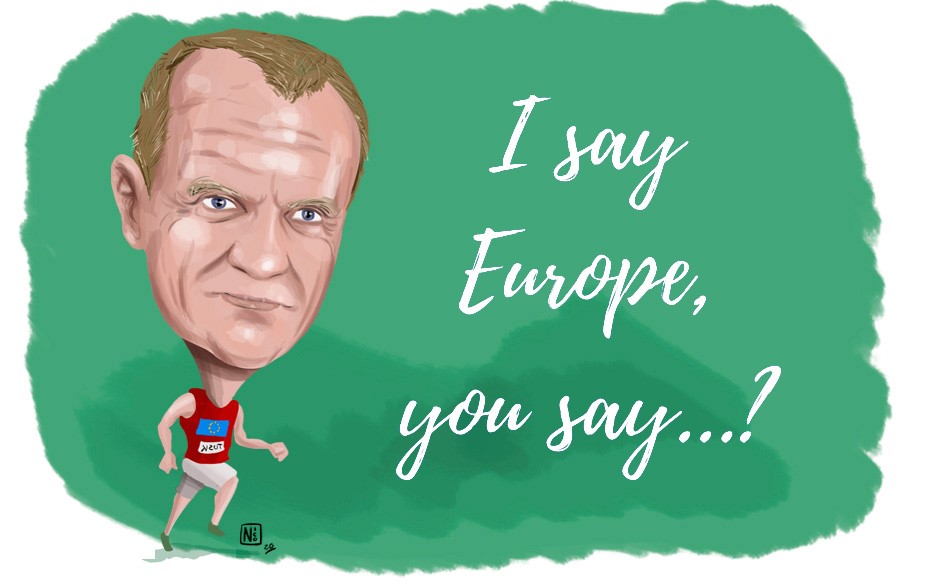
I say Europe, you say?
Christmas Eve. For me, Europe is like home. Like family. Europe is about our traditions and also about our dreams. I can still remember, especially from when I was a child, that Christmas is a time when you dream most intensively.
In your opinion, what has been Europe’s greatest strength during this Corona-crisis?
I am afraid that especially at the beginning of the crisis, Europe showed its weaknesses rather than its strengths. We can still remember this time of chaos, of a conflict among member states, this spiral of mutual accusations. All this included typical blame games, partly provoked by the external powers. This is why, in fact, what I consider to be the biggest European strength during this time, is that we were able to at least agree on the Recovery Fund, and that we were able to stop this conflict and the very emotional tensions among member states.
Do you think the EU will come out of this crisis more united and integrated as it has after past crises?
No one knows when the crisis will end. But what we do know for sure is that it will have many consequences of a known and of a still unknown nature, in politics, economy, and in our social life. This very fact can provoke fears and a feeling of threat and uncertainty. Sometimes fear is a good reason to seek unity. But of course, I would prefer a Europe which is able to unite around other values than the common threats or fears.
The EPP has managed to keep its activity running smoothly since the very beginning of the pandemic, how did the party adapt so quickly and make it possible with all of the limitations in place?
First of all, because we have a brilliant President… I’m just kidding. Seriously speaking, I think our whole team was really disciplined and well-skilled when it comes to new forms of daily work. I was so impressed, because it was absolutely clear for me that our people were extremely well-organised and determined, and yet cautious at the same time. In fact, they worked very intensely despite the pandemic restrictions and rules, while respecting those same restrictions and rules. This was, and not only for me, a very unique experience and I have learned something very positive about my people here.
What about you? Were you already an advanced technology-user, or did you have to adapt to all of the virtual tools; Webinars, doing conferences on Teams, and so on?
I was able to use my mobile before the pandemic… Frankly speaking, I will never like those new methods and new forms of work. I will certainly never like politics online. Politics is about emotions. It is not about procedures or simple messages, or institutional preparation. Sometimes I feel that maybe this pandemic is some kind of an anticipation of our new post-pandemic reality, which means that you will have meetings online instead of in person. Maybe our whole life will be online, not in person. It seems to me like a very pessimistic dystopia.
This leads us really well into our next questions. What do you miss the most about pre-COVID times?
I am a football fan. Not just about football, I am crazy about all sports. What I miss the most is, first of all, sports events with an audience; crowds chanting and booing. This change is extremely visible and painful. Also, going to the cinema with my family, especially with my grandchildren, or even smiling at people on the streets, because now a smile is covered by a mask. What I also really miss is a Sunday breakfast at Le Pain Quotidien, at Avenue Louise. It used to be a little ‘tradition’ for me here in Brussels.
And what do you miss the most in your political activity from the pre-COVID times?
As I have said, in politics, direct contact is really important. Especially for me, with my temperament. Sometimes, I prefer a really tough argument or fight. I really like this part of politics. Online, everything is a little bit artificial. You can prepare this online life and work perfectly, but politics without emotions and without fighting can be very boring. What I really hate in our work is routine, monotony, and the risk that our work may become monotonous.
This summer, the member states re-opened borders. Did you manage to travel somewhere for your holidays?
Yes, I did. I spent four weeks in Poland in a small village with my grandchildren in my most beloved Kashubia region, and it was one of the best times in my life. We also went to Normandy and Brittany in France. I have to say that visiting Mont-Saint-Michel, Saint-Malo or Deauville during the pandemic time was something really unique and exceptional.
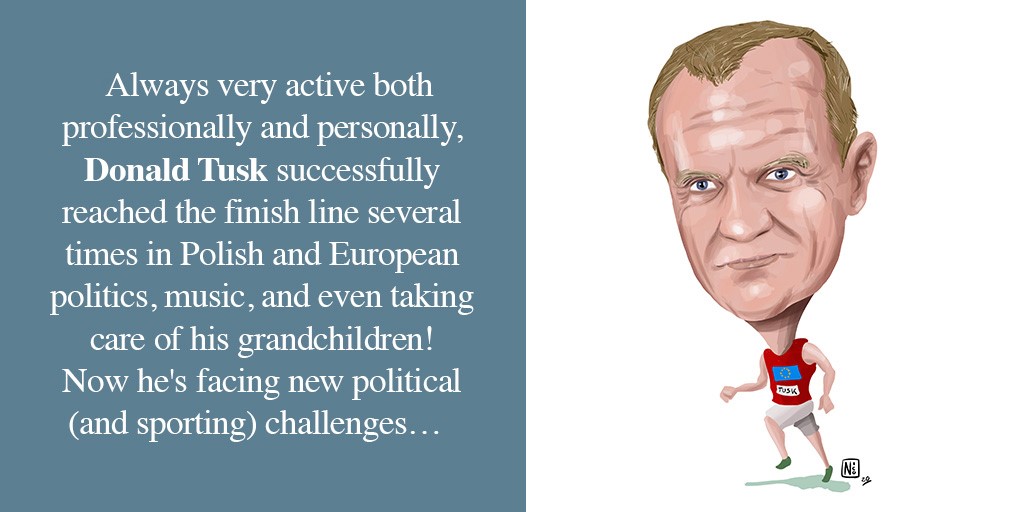
COVID-19 has created deep concerns all over Europe. What are your feelings about Central Europe, and especially Poland? Do you think the crisis will bring forth populist narratives in certain EU governments?
I am very worried about COVID-19 developments, especially in my country. I should say that not only Poland, but Hungary and the entire region, have gone through the first phase of the pandemic quite safely. In my opinion, these are rather fortunate coincidences than good governance. In fact, in my opinion, it is very difficult to evaluate the effectiveness of the Polish, Hungarian, or Slovak governments because of their lack of testing. Without testing, you have no real measures or instruments to assess the situation. For example, in Poland we have almost five times fewer tests per capita than in Germany. Without concrete numbers or statistics, you can make propaganda.
The recent presidential election in Poland was a big disappointment for many of us, but it gave hope to many Polish and European citizens. What should be the next steps for the Polish opposition after this very close election?
This optimism is quite justified. In fact, if the presidential elections had been fully fair, the opposition would have won. The difference was really small. You can say that the elections were free, but they were not fair. I am quite sure that if the democratic opposition in Poland were able to unite before the next parliamentary election which is in three years, they would have a chance to win.
Returning to EU politics, what are the biggest challenges facing the EU and the EPP during this autumn and winter?
That is a question for a book rather than for our short interview! In a few words, of course the pandemic comes first, for which an effective vaccine is our hope. Unfortunately, migration will remain a crucial issue in the next months. It has received less coverage because of the pandemic, but nothing has changed. The dramatic situation in Lesbos in the migrant camp of Moria is just a signal that migration will be topical in the agenda, no doubt about that. A growing pressure from the illiberal democracy front is not just a seasonal problem. It will be a very long-term process for those of us who believe in liberal democracy and who want to protect it. Rebuilding our transatlantic relations after the presidential elections in the US is another priority. And, of course, relations with China and Russia.
Another hot topic: Do you believe we will finally have a hard Brexit in January? Is there any way to make the British government come to its senses?
With Prime Minister Boris Johnson, given his extravagance, everything is possible. As a consequence, every scenario is possible, including a ‘no-deal scenario’. Knowing him – and I know him very well – a ‘no-deal scenario’ is what he prefers. This is why we need to be even more united, the EU27, especially when it comes to the Irish question.
In our latest ‘I say Europe, You Say…?’, former Swedish Prime Minister Carl Bildt suggested that we ask you what the plan is with Viktor Orbán?
As you know, due to pandemic restrictions, we are not able to organise our regular Political Assembly, including the voting on the formal motion from our 14 member parties, to expel Fidesz. I know that it may sound like an excuse to bypass the issue, but this is our reality today in this critical moment. Some of our colleagues still believe that it is possible to convince Viktor Orbán to change his approach as to the principles of democracy and rule of law. I am afraid they are too optimistic. I am much more realistic when it comes to Orbán. My personal ambition is to protect our political family from the new trend of illiberal democracy, nationalism, and semi-authoritarian aspirations. For this, I need a clear majority in the EPP. We will see.
Happier question now: when are we going to hear you sing again?
Those who wish me well suggested that I stop singing altogether. And I can understand why. So now I am concentrated on my preparation for my first marathon. Thanks to the pandemic, I have more time to train and prepare myself. Jogging is much easier for me.
Which EPP colleague or person would you nominate for our next interview, and what questions would you ask?
Antonio Tajani. And my question to Antonio will be: How can a moderate centre-right be rebuilt in Italy?
That’s a tough question.
Life is tough!
I say Europe, you say…? is a series of candid interviews with centre-right movers and shakers of the European project. From legislative work to food preferences, from weekday causes to weekend hobbies, we show you the human face of EU politics and its main protagonists.


